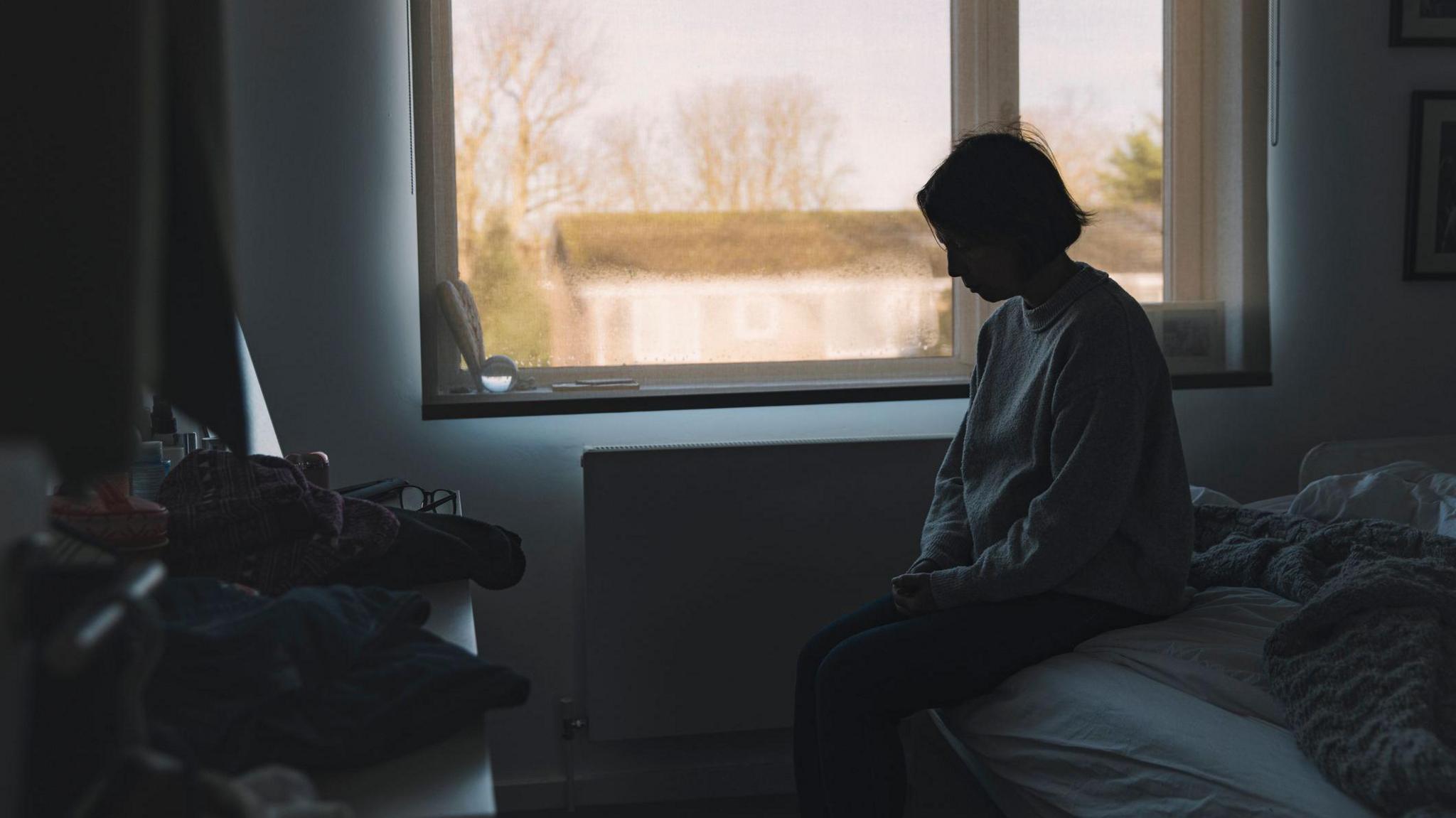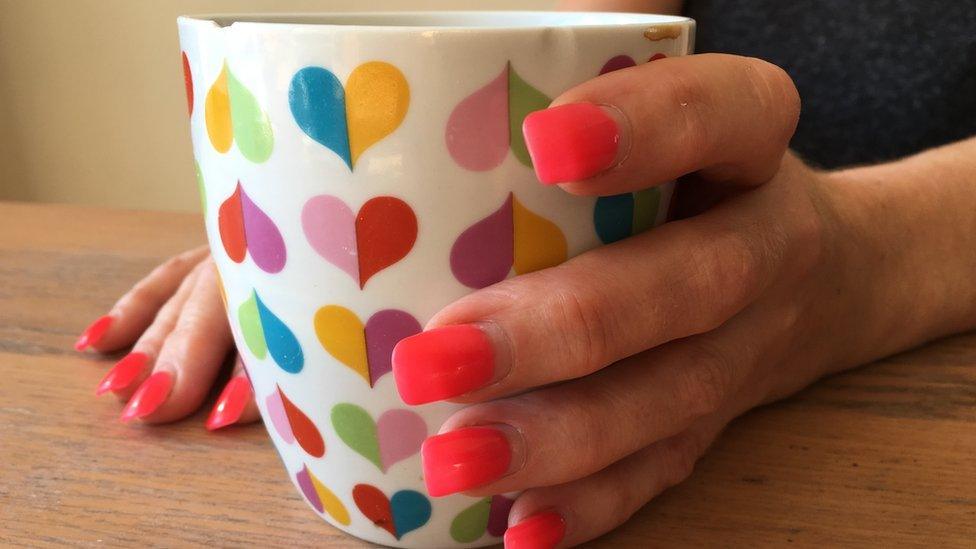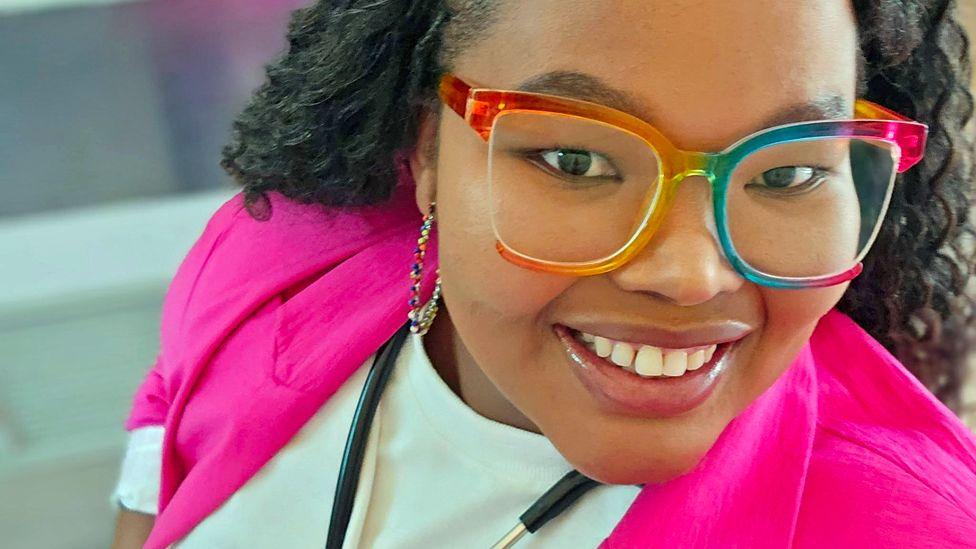'My husband stole milk tokens to buy beer'

Anna is still finding loans taken out her name 10 years after she left an abusive relationship (library picture)
- Published
Crashing a car deliberately, taking control of benefit payments and threatening to share explicit images unless money is handed over. These are all forms of economic abuse that are often overlooked.
Londoner Anna, not her real name, was sexually and physically abused, but she says the abuse that has lasted the longest is the economic abuse.
"He's ultimately still controlling everything. It doesn't matter what I do. I can never, ever get away from it," she explained.
Anna's ordeal started when her ex-partner stole from her while she was in hospital giving birth: "I couldn't prove it, but he had sold my belongings. Then he stole my baby's milk tokens to buy beer."
'National emergency'
Despite leaving him more than 10 years ago, Anna is still finding loans and credit cards he took out in her name.
Despite appealing to the banks, she has "tens of thousands" of pounds worth of debt taken out in her name. Her credit score has been destroyed and she is now on the brink of homelessness.
A study by the charity Surviving Economic Abuse (SEA) of nearly 3,000 women suggests more than four million women in the UK have experienced economic abuse from a partner or ex-partner in the past year.
It found those in London face the highest levels of such abuse, with about one in four affected. Black, Asian and other ethnic-minority women were more than twice as likely to experience this form of domestic abuse than white women.
In November, Prime Minister Sir Keir Starmer told the Commons he was committed to tackling what he described as a "national emergency" of economic abuse.
'Lights-on moment'
Researchers found many who face this form of abuse do not recognise it.
Anna only realised she had been economically abused after listening to discussion on BBC Radio 4's Woman's Hour.
"I can't even say it was a light-bulb moment. It was a Wembley Stadium switch the lights-on moment."
The SEA, which believes this awareness is crucial, said nearly two thirds of women who understood they had been subjected to economic abuse reached out to the organisation for help.
But many don't talk to anyone, even close friends and family, about their experiences. Forty-two percent of the women surveyed who had experienced economic abuse said they felt so isolated by their abusers that they remained silent.
Rosa Wilson Garwood, author of the SEA's study, said: "Perpetrators actively exploit systemic vulnerabilities that women may face, such as institutional discrimination, immigration status, or support needs, to cause harm."
This can include the misuse of the benefits system, banking services and family courts to exert control long after the relationship has ended.
Survivors recount trauma of economic abuse
- Published12 September 2024
The charity is calling on the government to set up an economic abuse taskforce, to bring together experts from across the financial services, legal and domestic abuse sectors, to tackle issues like joint mortgage abuse, coerced debt and credit restoration.
There is help available for victims of economic abuse who have been left with debts, through the Economic Abuse Evidence Form, external. Specialist money and debt advisers can then inform banks and other organisations that someone has experienced economic abuse.
Alongside financial advice, the service helps provide a clear understanding of the situation to organisations without the person having to repeat their story multiple times.
Home Office minister Jess Phillips said: "No woman should ever be trapped in an abusive relationship because of the suffering they will face if they try to leave, whether that is the threat of physical violence or the prospect of being plunged into poverty and homelessness.
"Tackling economic abuse - a true hidden crime - will be integral to achieving our ambition of halving violence against women and girls in a decade."
Listen to the best of BBC Radio London on Sounds and follow BBC London on Facebook, external, X, external and Instagram, external. Send your story ideas to hello.bbclondon@bbc.co.uk, external
Related topics
More on economic abuse
- Published19 November 2018

